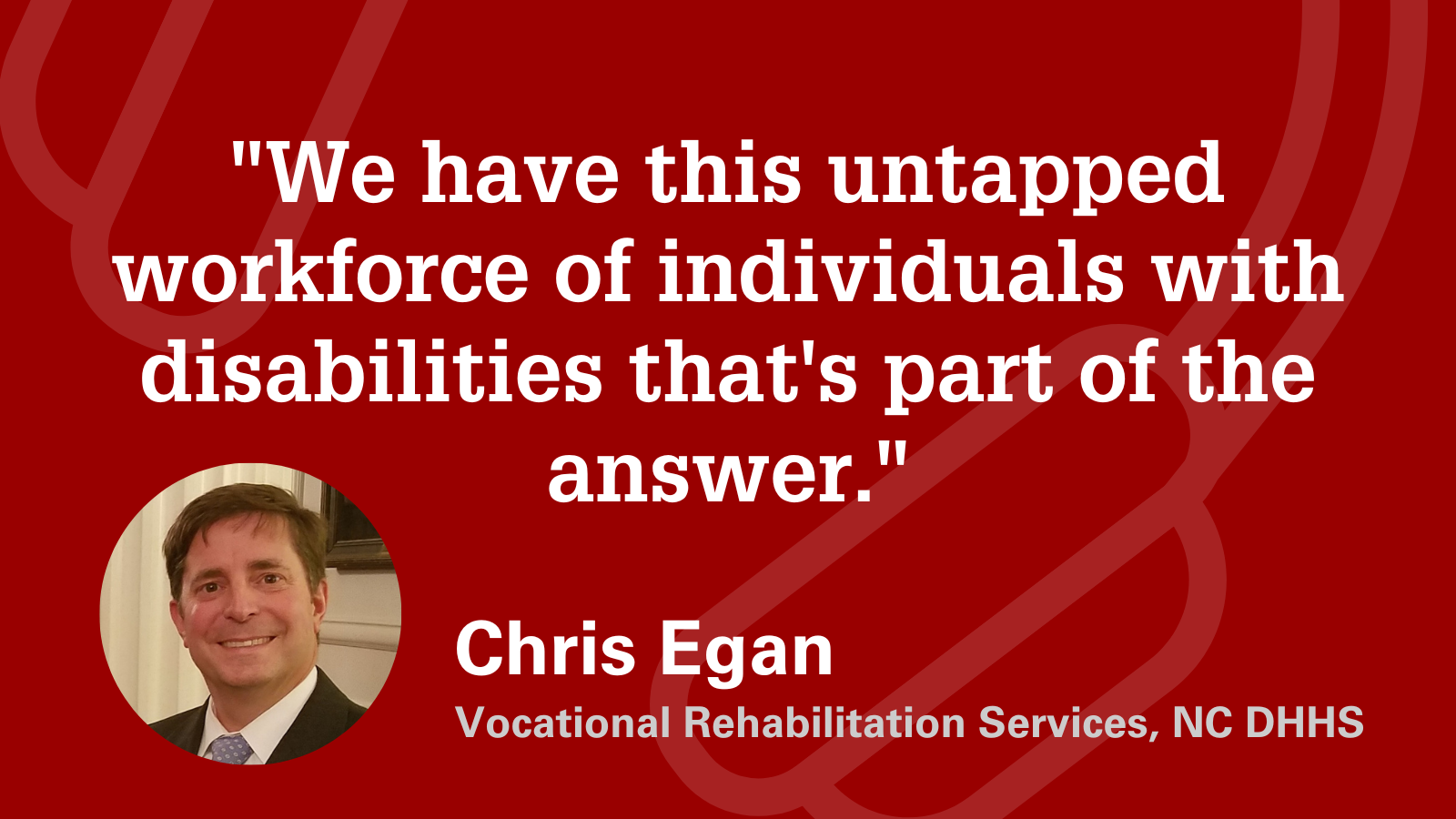
Talent First Economics Impact Report
Message from the Director
For North Carolina to stay competitive in an increasingly global, mobile and diverse economy, we need more workers, of all backgrounds and skill sets, to be able to obtain employment and thrive in the workplace.
As a nonpartisan connector, the Institute for Emerging Issues (IEI) has gathered thought leaders and partners from across the state, nation and globe for nearly 40 years to share perspectives and solutions to address our state’s emerging opportunities and challenges. The 2023 Emerging Issues Forum, Talent First Economics, examined ways to overcome barriers and help workers find employment and stay engaged in the workplace. We enlisted the lived expertise of workforce equity advocate Philip Cooper to ensure that the the work coming out of the forum accurately represented the needs and solutions identified by those who face these barriers.
The Emerging Issues Forum is the signature event in a larger body of work that begins years prior and continues long after the event itself is over. This impact report highlights the work IEI and our collaborative partners have engaged in to help put talent first—increasing our understanding of what employees are looking for and how employers and systems can respond—in order to better energize, equip and unleash North Carolina’s full abundance of talent.
Sarah Hall
IEI Director
Key Statewide Accomplishments
While this impact report focuses on the direct work IEI has facilitated throughout the state from September 2022 – March 2024, it’s important we also highlight key accomplishments that have occurred across the state since the Talent First Economics Recommendation Report was first released in June 2023. We applaud the many people and organizations that worked to support and implement these programs and policies throughout the state.
Support for working parents:
- The NC Department of Commerce created a Child Care Business Liaison, partnering with businesses, local communities, government, and philanthropic organizations to develop strategies employers can utilize to provide child care support to their employees (12/2023).
- As the American Rescue Plan Act’s Child Care Stabilization Grants end, Senate Bill 357 provides $67.5 million in grant money to keep child care centers open (7/2024).
Support for justice-involved individuals:
- The NC Department of Commerce’s Labor and Economic Analysis Division (LEAD) created the NC Reentry Outcome Reporting System (NC RORS) and provided initial insights. (11/2023)
- A Juvenile Reentry Employment Program is being piloted in Pitt, Craven, Pamlico and Carteret counties and will offer young adults who have been involved with the juvenile justice system vocational training and employment opportunities; housing and transportation assistance; short-term financial assistance; intensive case management and supervision; and engagement from local reentry councils and service providers in the area. (11/2023)
- Governor Cooper signed Executive Order 303 directing agencies under his control to coordinate in identifying more “second chance” employers, increasing access to career services, increasing work release, apprenticeship and employment opportunities, and improving the parole process. (1/2024)
- The NC Department of Commerce awarded one-time grants totaling $750,000 to three local Workforce Development Boards to support the creation of Local Reentry Councils (LRCs) within their areas. (4/2024)
- The NCWorks Commission created and awarded a new Local Innovation Fund Reentry Grant. The grantee is a partnership in the Pitt County area, which seeks to train people who were formerly incarcerated to build new careers and potentially start their own businesses. (6/2024)
Support for those with disabilities:
- The NC Department of Health and Human Services launched Project Spark to help people with disabilities working in sheltered work programs shift into competitive integrated employment. (10/2023)
Support for military spouses:
- The NC Department of Transportation is partnering with the Department of Defense’s Military Spouse Employment Partnership. (4/2024)
IEI’s Impact
With support from the U.S. Economic Development Administration and Truist as well as numerous Emerging Issues Forum sponsors, IEI was able to support the following activities to focus the state’s attention on the important work of engaging more underrepresented workers into good jobs.
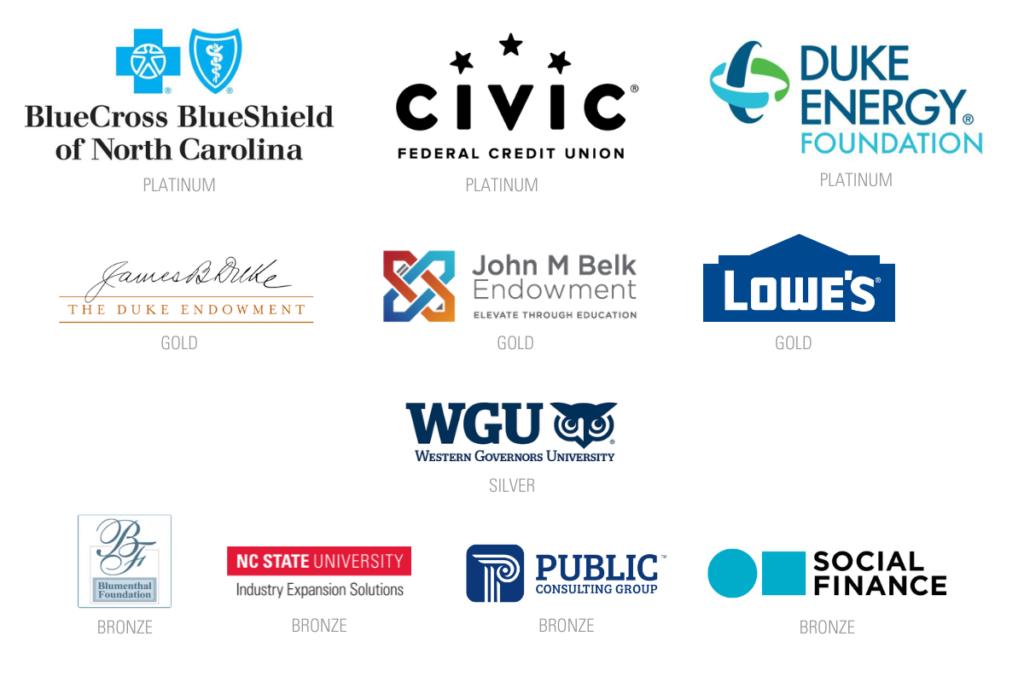
Connecting People to Information: Data
Data: Employment Briefs
IEI Policy Intern Brodie Smith created a series of data briefs examining the state of employment in North Carolina for five subgroups of individuals underrepresented in the workforce: justice-involved, opportunity youth, parents of young children, transitioning military and their families and those with disabilities/neurodiversity.
Data: Future Prosperity in North Carolina Report
A background paper for the focus of the 2023 Emerging Issues Forum. View the report.
Data: Forum Keynote Remarks
Connecting People to Each Other: Task Force
IEI convened a task force in fall 2022 to identify tangible ways leaders can address the needs of potential workers so they can enter and succeed in the workforce. The task force was led by IEI Practitioner-in-Residence Philip Cooper and NCWorks Commission Executive Director Annie Izod. More than 70 experts served on the task force, including those with lived experience in the five identified groups, those with a deep understanding of the workforce system, employers who have hired workers from these five groups and nonprofits working directly with these communities.
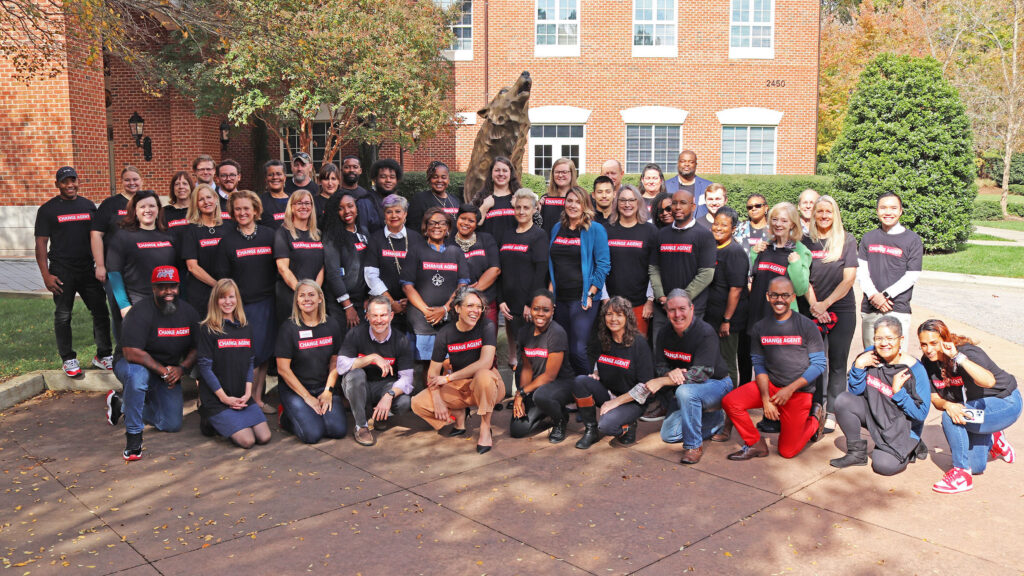
Together, the task force developed an initial set of recommendations that leaders can take action on to grow North Carolina’s talent supply. Their recommendations are available in the Talent First Economics Recommendations Report.
Connecting People to Ideas: 2023 Emerging Issues Forum
On Feb. 13, 2023, nearly 500 people of different backgrounds and professions from across the state gathered to learn from and with each other at IEI’s first in-person forum since February 2020. The forum examined ways to overcome barriers and help workers find employment and stay engaged in the workplace.
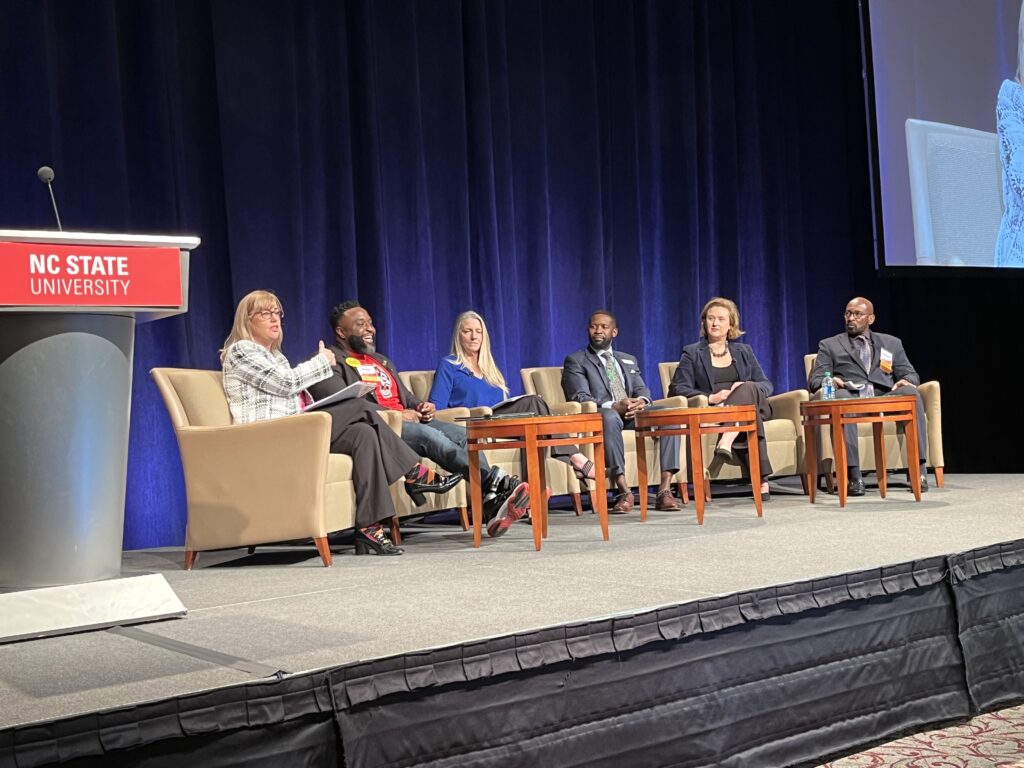
Connecting People to Ideas: Talent First Tuesday Webinars
The forum breakout sessions, featuring those with lived experience, were so well-received by attendees that IEI brought them back for a special virtual series called Talent First Tuesdays. Each panel discussed the barriers faced by one of the five groups of underrepresented workers included in the Talent First Economics Task Force. Panelists also shared their own lived experiences and discussed ways to bring forth real, actionable change.
Watch recordings or listen to podcasts of the completed sessions:
Connecting People to Ideas: Workforce Development Leadership Initiative
A cohort made up of five communities from across the state completed the inaugural North Carolina Workforce Development Leadership Initiative developed at NC State University, an intensive, six-month professional training program that ran from October 2022 through March 2023. Participants were among the first in the nation to receive the designation of Certified Workforce Developer.
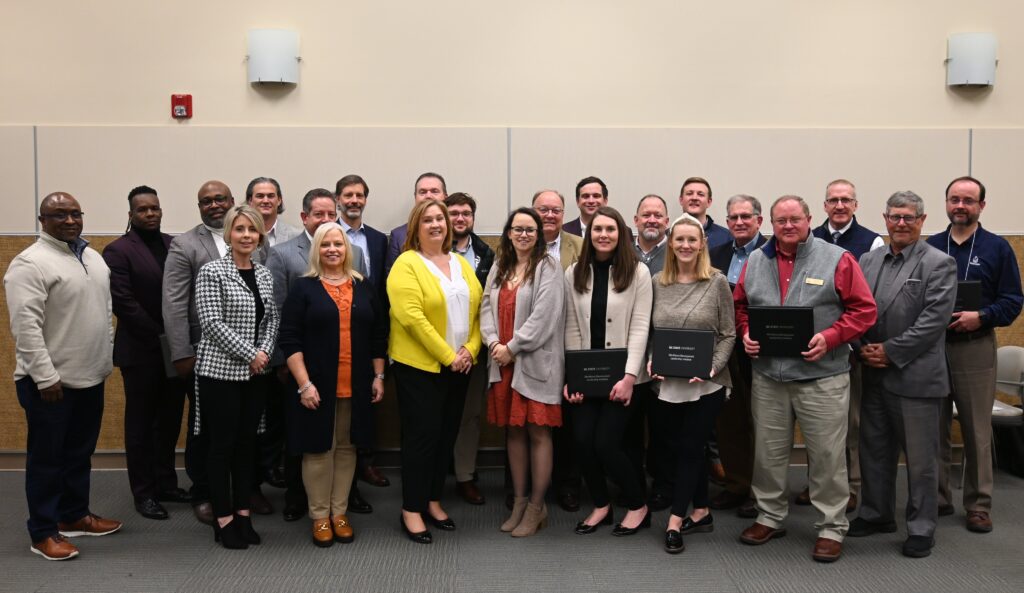
Seeding Ideas in Communities: Regional Meetings
IEI supported the Talent First Economics Community Cohort regional teams to hold meetings in their communities meant to increase employment opportunities for underrepresented workers.

Clean Energy, AI and Growth: Guilford County Workforce Leaders Hold Action Meeting on Jobs of the Future
Read more

Cape Fear Community Cohort Team Brings Regional Leaders Together to Support Opportunity Youth
Read more
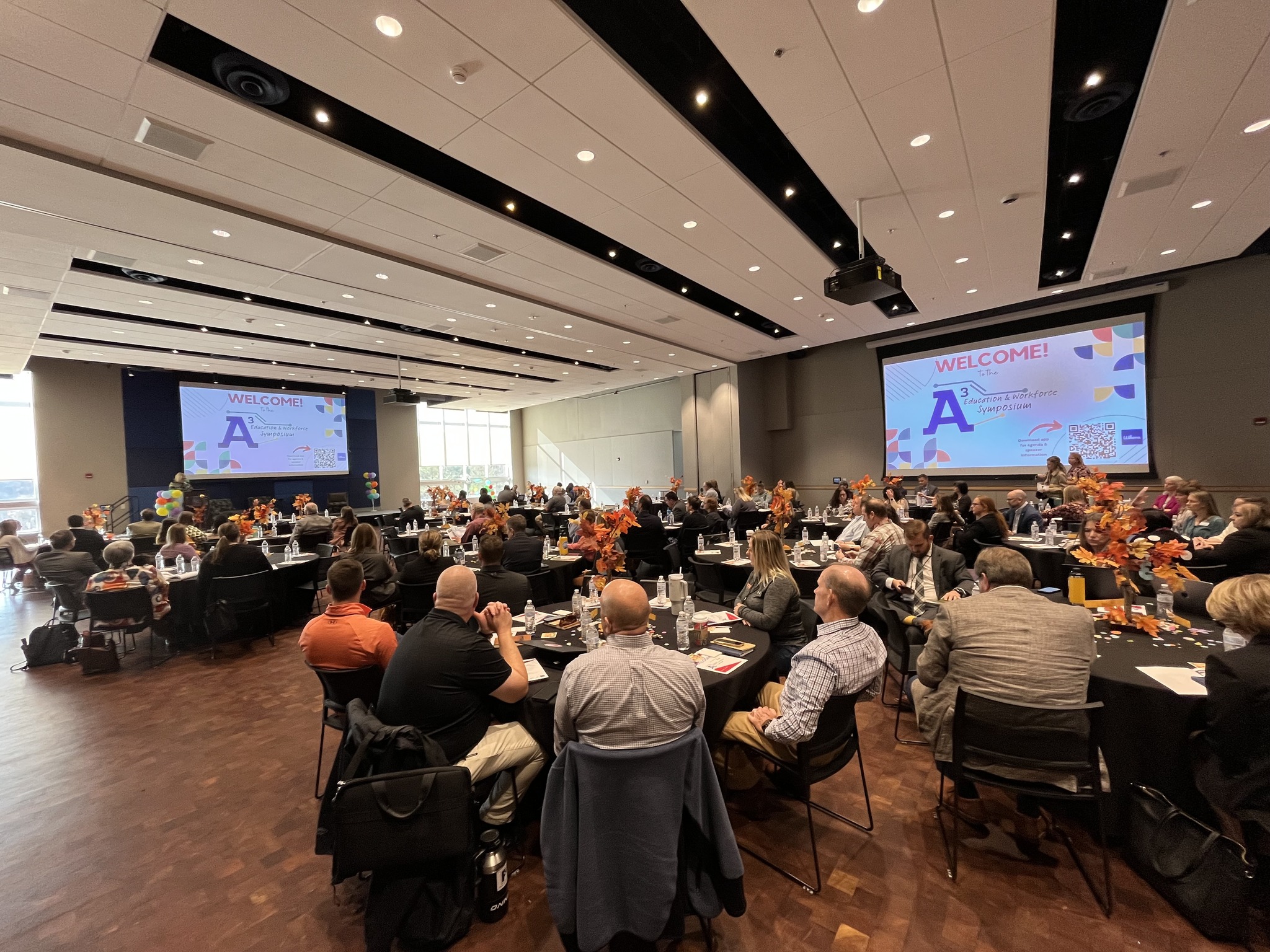
Western NC Community Cohort Team Holds Symposium to Address Regional Education and Workforce Goals
Read more

Community Cohort Team Discusses Engaging with Underutilized Workers in Eastern NC
Read more
Seeding Ideas in Communities: Presentations
The Talent First Economics report was distributed statewide and presented to several statewide and local leaders, including:
| National | Statewide | Regional/Local |
|---|---|---|
| National Skills Coalition | NCWorks Commission | NC Association of Regional Councils of Government |
| American Manufacturing Communities Collaborative | NCWorks Partnership Conference | Rocky Mount Chamber of Commerce (video) |
| National Minority Economic Development Institute | NC Department of Transportation | Alamance County Chamber of Commerce |
| NC Employment and Training Association | NC East Alliance | |
| NC Association of Workforce Development Boards |
Conclusion
While IEI’s work with Talent First Economics is coming to a planned end, our support of the NC Department of Commerce’s First in Talent Strategic Economic Development Plan for the State of North Carolina will continue.
North Carolina’s population is projected to grow by one-third by 2050. The economic opportunities from this growth will be significant, and we need to ensure we have a skilled workforce ready to support our future infrastructure needs in the areas of energy, water, housing and more. The 2025 – 2027 Emerging Issues Series, Future Forward Infrastructure, will engage partners from across the state to examine key infrastructure needs, identify best policies and practices to meet them and take advantage of the economic development opportunities the new infrastructure generates.



